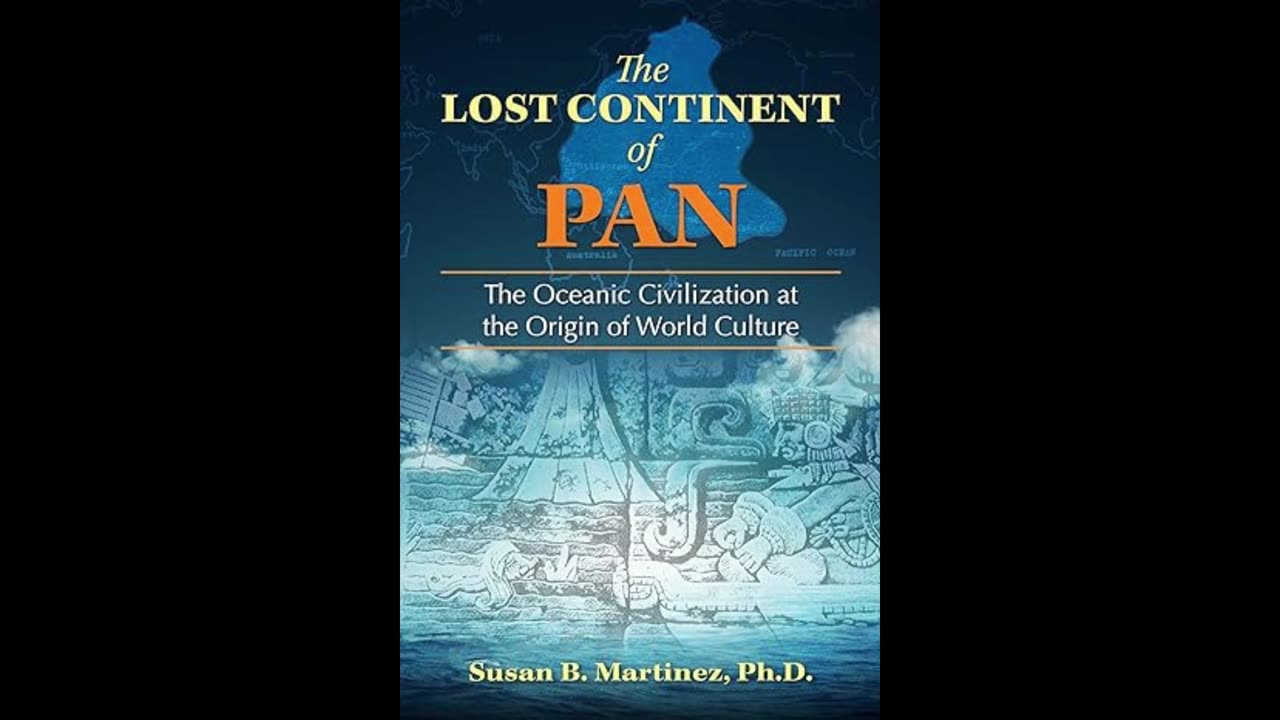Premium Only Content

The Lost Continent of Pan: The Oceanic Civilization at the Origin
The destruction of the vast continent of Pan--also known as Lemuria or Mu--in the Pacific Ocean 24,000 years ago was the greatest catastrophe that ever befell humanity. Yet it resulted in a prehistoric Golden Age of arts and technology thanks to the Sons of Noah, who, forewarned and prepared for the disaster, escaped in 5 organized fleets. Theirs was the masterful Ur-culture that seeded China, Egypt, India, Mexico, and Peru, explaining the sudden injection of the same advanced knowledge and sophisticated arts into those widely separated lands.
Examining the diaspora from the sunken continent of Pan, Susan B. Martinez finds traces of the oceanic Pan civilization in arts and technologies from canal-works, masonry, and agriculture to writing, weaving, and pottery, but most importantly in the art of navigation, the hallmark of the survivors of the catastrophe. Using archaeo-linguistic analysis, she reveals the mother tongue of Pan hidden in strikingly similar words for royalty, deities, and important places in vastly different languages, including Quechua, Maori, Sanskrit, Japanese, Chinese, Greek, and Sumerian, as well as English through the prefix “pan” which denotes “all-encompassing.”
The author reveals how the Pan diaspora explains the mound builders on each continent, the presence of “white” humans in Native American legend, the red-haired mummies found in China, and the Ainu of Japan. She shares recent genetic studies that reveal Polynesian DNA in central Europeans, Mesopotamians, South Americans, and the 9000-year-old Kennewick man and shows how Pan provides the missing link. She reveals why carvings at Gobekli Tepe are similar to Toltec artistry, why stone towers in Japan and Easter Island are identical, and how the Pacific Ring of Fire was activated.
-
 LIVE
LIVE
Major League Fishing
23 hours agoLIVE MLF College Fishing Championship!
371 watching -
 2:08:32
2:08:32
Tim Pool
3 hours agoAmerica First or Supporting Ukraine War, DEBATE | The Culture War with Tim Pool
126K148 -
 59:04
59:04
Ben Shapiro
1 hour agoEp. 2178 - SHOWDOWN: Trump Stares Down China
7.4K10 -
 1:39:05
1:39:05
Steven Crowder
5 hours ago🔴 Doge's Big Secret & Trump Slaps Commies and Illegals
373K230 -
 LIVE
LIVE
Canada Strong and Free Network
7 hours agoCanada Strong and Free Network
335 watching -
 DVR
DVR
Rebel News
2 hours ago $0.81 earnedLibs push more censorship, Carney's ties to 'largest tax scam', CCP influence in BC | Rebel Roundup
5.59K5 -
 58:27
58:27
The Big Mig™
2 hours agoTITLE: Global Finance Forum From Bullion To Borders We Cover It All
2.95K3 -
 50:13
50:13
The Rubin Report
5 hours agoWill Trump’s New Escalation in Trade War with China Backfire?
81.1K17 -
 1:25:20
1:25:20
Flyover Conservatives
13 hours agoFrom Stuck to Scaling: Clay Clark’s 5 Tips to Rapid Business Growth - Clay Clark | FOC Show
21K4 -
 2:02:37
2:02:37
Benny Johnson
3 hours ago🚨 Director of National Intelligence Reveals EVIDENCE of Rigged 2020 Election, Machines Switch Votes
86.7K74